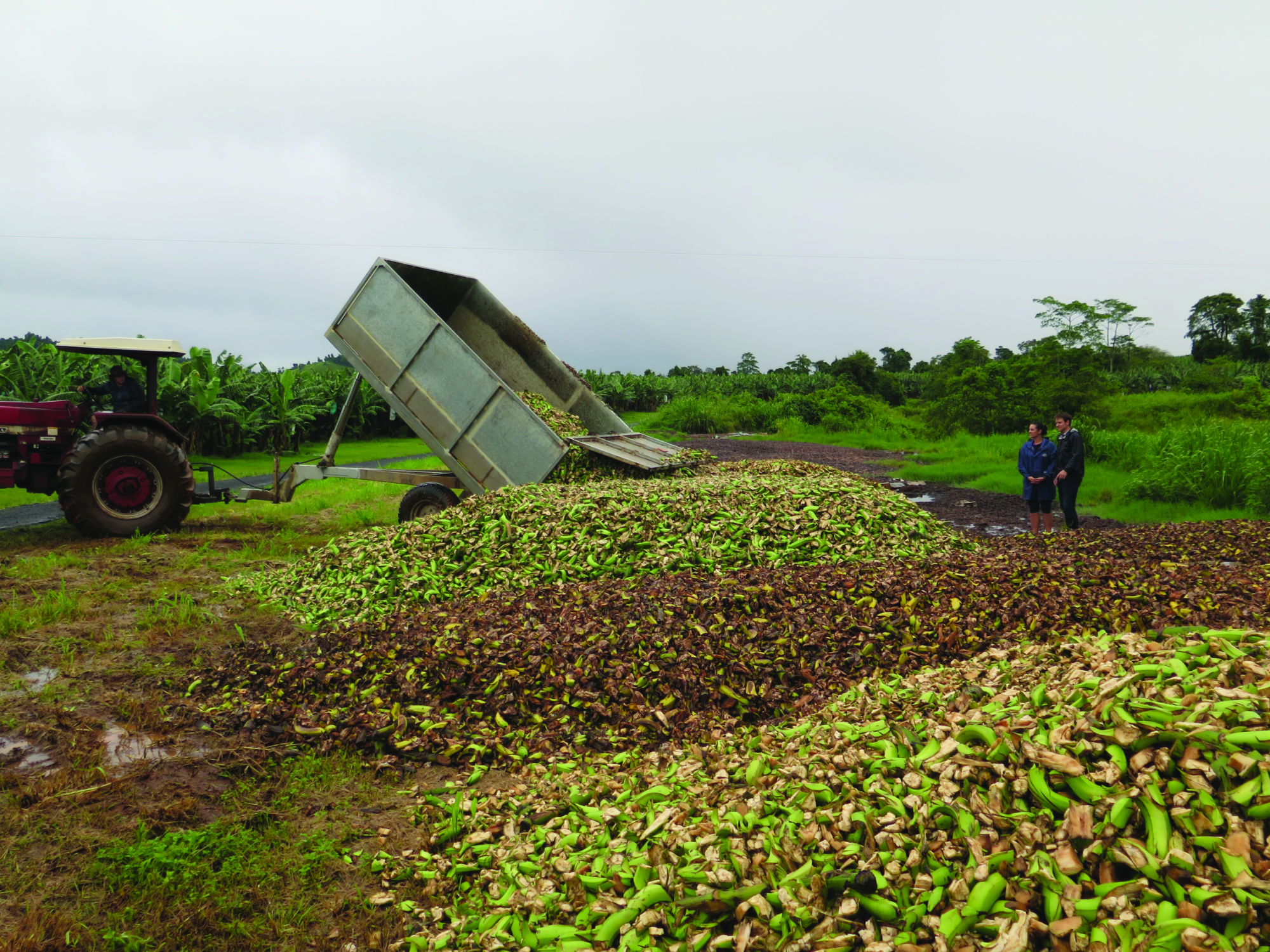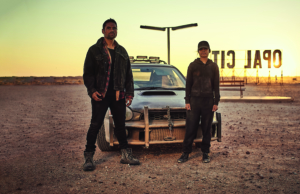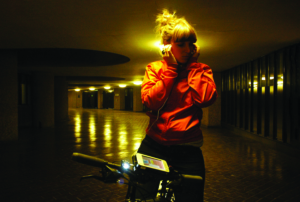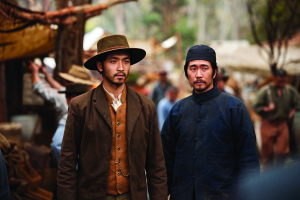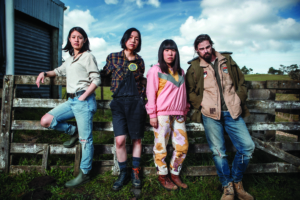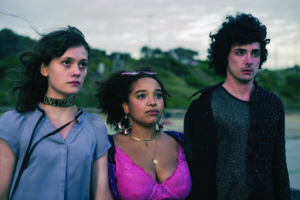The problem with much of the waste generated by our capitalistic culture is that it’s invisible. We are largely disconnected from how things are produced, where waste goes, and the environmental and human costs of consumerism. After the useful bits have been used up, packaging and waste goes into the rubbish or recycling bin, and then they disappear from our lives, never to be thought of again. We trust that ‘someone else’ will take care of things responsibly.
While most people understand, in an abstract sense, that consumer culture is wasteful, they can’t be outraged in a way that leads to behavioural change or a refusal to engage, because there’s no transparency around what happens to all that waste. In a climate wherein we’re so prepared to be outraged, for the most part, we’re not given this opportunity when it comes to the substantial amount of rubbish we generate. However, this is changing – a recent spate of nonfiction titles is lifting the veil on what’s become a global crisis, educating audiences about the issue of wastage worldwide and, with the future of the planet in view, inspiring them to improve their consumption patterns.
One such title is the ABC’s War on Waste. Hosted by Australian television personality Craig Reucassel, best known for his time with satire group The Chaser, the series’ first three episodes were released in May 2017. Each episode helps to uncover the true state of household and commercial waste in Australia by focusing on a particular issue. Episode 1 tackles the unacceptable amount of waste that the ‘Big Two’ supermarkets – Coles and Woolworths – create due to their insistence on cosmetic standards around produce, resulting in tonnes of edible fruit and vegetables being discarded. This episode also introduces the ten Sydney families whose bins and waste habits are unpacked throughout the series, to envision the possibility of making a difference from home – they’re stand-ins for the average Aussie viewer. Episode 2 tackles the 5 billion lightweight plastic bags used in Australia every year. And Episode 3 reveals the general public’s massive misunderstanding around the recyclability of single-use coffee cups, and shines a spotlight on the 6 tonnes of clothing that gets thrown out every ten minutes in Australia.
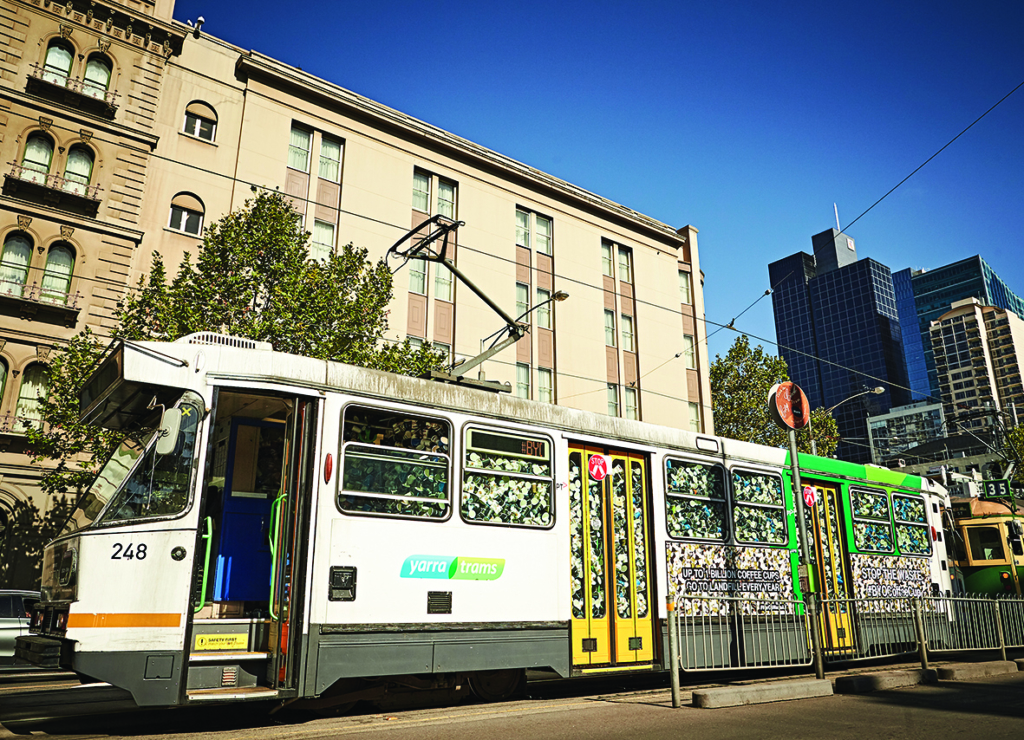
The fourth episode aired in December 2017. It follows up on the outcomes introduced in the first three, and introduces a new issue: the waste created by disposable cans and bottles (a whopping 15,000 every minute in Australia). This episode advocates for a national container-deposit scheme like the highly successful tencent refund pioneered in South Australia.
The series provides broad coverage of some of the most pressing waste issues in our country, but War on Waste isn’t just a piece of factualtelevision programming. This multiplatform project also includes a podcast, a social-media campaign and a regularly updated website, as well as in-person events around the country.
The success of War on Waste lies not only in the quality of its content, but also in its multiplatform approach, which allows viewers to become part of the content: they contribute to the discussion and feel empowered to make meaningful change in the world. At the 2018 Australian International Documentary Conference, the ABC’s commissioning editor of factual programming, Stephen Oliver, reflected on the importance of a communal approach and the ABC’s support for this pressing issue:
The thing about waste is it’s not political. It’s actually a genuine issue that will make the world better if we learn how to renew, recycle, reduce. So we decided we could call it out and campaign, for a change that so clearly needs to happen.[1]Stephen Oliver, quoted in David Knox, ‘AIDC 2018: “War on Waste Turbo-charged the Issue’, TV Tonight, 7 March 2018, <https://tvtonight.com.au/2018/03/aidc-2018-war-on-waste-turbo-charged-the-issue.html>, accessed 8 May 2018.
War on Waste isn’t just a piece of factual-television programming. This multiplatform project also includes a podcast, a social-media campaign and a regularly updated website, as well as in-person events around the country.
The podcast brings together host Reucassel and media personality Wendy Harmer. The tone of the podcast differs from that of the factual TV series, featuring conversational banter between Harmer and Reucassel, engagement with audience letters and feedback, and interviews with guests. In contrast to the TV show, the podcast focuses more on the small things people can do to reduce waste at home. Yet the podcast operates in much the same way as the show – it often has a few strands on the go at once, with small businesses and projects featured, and seeks to answer real domestic problems, like how to use up food scraps, how to minimise consumption overall and how simple repairs can prevent possessions becoming landfill. The episodes are short and well produced, drawing on the ABC’s current backing of high-quality podcasts catering for a wide audience via its much-hyped new platform, ABC listen.
In the podcast, Reucassel plays more of an ambassadorial role – a contrast to the hardened (if humorous) journo role he plays in the TV show. Dropping some of the bravado he exhibits on screen, he visits people who are living waste-free and, with kindness and genuine curiosity, tries out what they have to offer. He’s learning just as much as the listener. And he’s always, always imperfect. Rather than projecting an image of himself as a faultless eco-warrior with all the answers, he’s honest about whether he feels a low-waste solution will fit into his lifestyle. On a foraging expedition, Reucassel admits to being deeply interested but unsure whether the time commitment of foraging for sea urchins for dinner is a practical addition to a busy life – arguably pre-empting the thoughts of many listeners. This is reflective of the whole War on Waste project, which encourages the general public to take reasonable action.
But the initiative also invites the audience to call out systemic problems they see around them; it stresses that fixing the waste problem is a group effort requiring the participation of businesses and industry, too. The War on Waste socialmedia campaign – through its hashtags #SizeDoesntMatter, #BanTheBag and #BYOCoffeeCup – is an essential part of the project’s success. Even some six months after the airing of the follow-up episode, there are still contributors using these hashtags to share the shifts in their behaviour in the aftermath of the series. War on Waste taps perfectly into this new branch of activism, recognising social media’s potential to extend conversation and action beyond national boundaries. In this sense, the ABC contributes to the global discussion around like-minded waste documentaries, such as the Anthony Bourdain–produced 2017 film Wasted! The Story of Food Waste (Anna Chai & Nari Kye) and 2018’s Netflix special Rotten.
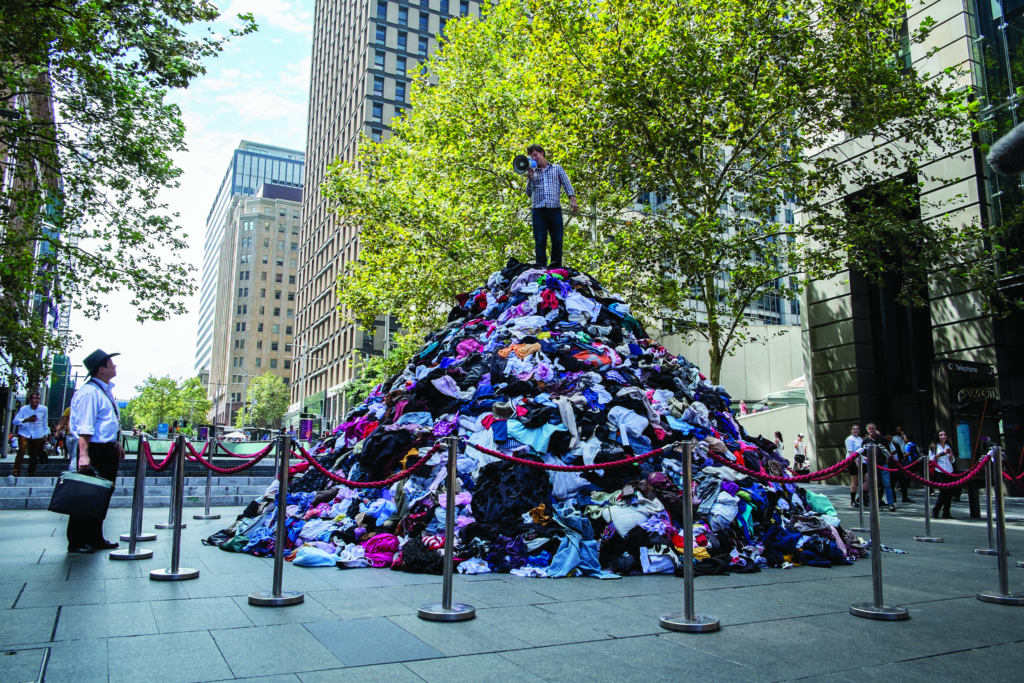
Localisation
Not only does War on Waste tap into the trend of waste-based nonfiction works, but it is also itself an adaptation of an earlier series, Hugh’s War on Waste. Released in 2015, this show was presented by the BBC and hosted by Hugh Fearnley-Whittingstall. The similarities between the BBC and ABC versions of the show are many. Reucassel’s stunt of piling ten minutes’ worth of clothes waste in a public thoroughfare was earlier pulled off by Fearnley-Whittingstall. Where Reucassel targets waste in the banana industry, Fearnley-Whittingstall homed in on parsnips. Reucassel tours Melbourne’s CBD in a tram filled to bursting with coffee-cup waste; Fearnley-Whittingstall’s matching disposable-cup stunt involved the British tram equivalent, a double-decker bus. Reucassel acknowledges these parallels – in an interview with The Guardian, he articulates the difference between the shows’ matching stunts:
Hugh Fearnley-Whittingstall did not come from a comedy background but they had these types of stunts. We changed some of them and made our own. I really like that aspect of it. I think it helps to bring [the message] to a wider audience.[2]Craig Reucassel, quoted in Amanda Meade, ‘War on Waste: New Episode Peels Away at Food Extravagance’, The Guardian, 3 December 2017, <https://www.theguardian.com/tv-and-radio/2017/dec/03/war-on-waste-new-episode-peels-away-at-food-extravagance>, accessed 8 May 2018.
The backgrounds of the two presenters are indeed distinct. In the UK (and internationally), Fearnley-Whittingstall is best known as the face behind River Cottage, a sustainable farming project with attached cooking shows and cookbooks. As a result, his approach to the waste war – and the focus of the BBC series – comes primarily from a concern with sustainability and empowerment through the sensible and mindful use of food, whether in domestic or commercial contexts.
Unlike his British counterpart, Reucassel exhibits ‘dad humour’: he’s a little bit daggy and all the more endearing for it. He chases down politicians with a giant ball of plastic bags and trawls supermarket skips with a ‘dumpster-diving granny’, his trademark larrikinism winning the trust of audiences who may already know him from his Chaser days. Whereas Fearnley-Whittingstall’s audience likely comprises self-identifying greenies, Reucassel appeals to a wider and potentially more incidental viewership, who first are drawn to War on Waste for the laughs and sardonic journalism, then discover an investment in environmental issues.
Reucassel appeals to a wider and potentially more incidental viewership, who first are drawn to War on Waste for the laughs and sardonic journalism, then discover an investment in environmental issues.
Even more important is the ABC’s localisation of the waste issue itself. It’s too easy to take on the politics of overseas documentaries (see: the swathes of new vegans created by Kip Andersen and Keegan Kuhn’s 2014 Cowspiracy: The Sustainability Secret, available in Australia through Netflix) without interrogating the social, political and economic circumstances particular to the film’s country of origin. Not all practices cited in such documentaries carry over national borders. But War on Waste is replete with local engagement, including with a Sydney repair cafe, food-waste initiatives OzHarvest and Foodbank, and the soft-plastics recycling scheme run by REDcycle. The statistics cited throughout are relevant to a local audience, too, and measured in relatable terms – for example, the series points out that the combined annual food waste of homes and businesses in Australia could fill the Melbourne Cricket Ground (MCG) six times over.
While the BBC program offers a great many tips for reducing waste and some alarming examples of what’s happening globally, more relevant for Australian viewers are the roles our major supermarkets play and the failures (or successes) of our waste-management systems. The calls to action presented in War on Waste are made relevant to local contexts: we are given the contact details for a state politician, and armed with knowledge about Coles’ and Woolworths’ cosmetic standards and practices around produce packaging.
Through statistics, engagement with local initiatives and clever use of humour that appeals to Australians’ love of larrikinism, the issue of waste within our society becomes less abstract and invisible. It turns into something we need to band together over and address. If the high levels of audience engagement with the socialmedia campaign and podcast after the show’s broadcast are anything to go by, it seems this multiplatform approach has created some long-lasting changes to behaviour and awareness.
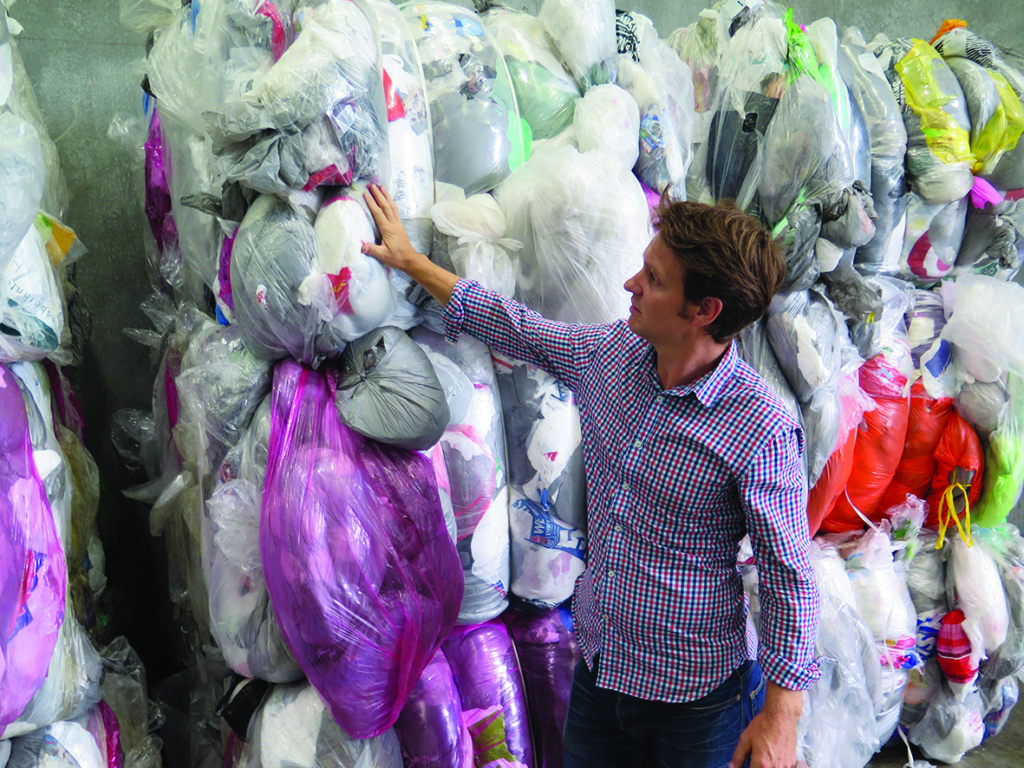
Outcomes in Australia
In the aftermath of the 2017 screening of War on Waste, real change kicked off.[3]See Ryan Collins, ‘The Positive Results of the War on Waste’, Planet Ark’s Recycling Near You, 26 June 2017, <http://recyclingnearyou.com.au/news/display/1290>, accessed 8 May 2018. The program’s footage of waste from a Queensland banana farm went viral, with upwards of 17 million views at the time of publication. This has led mainstream understanding of supermarkets’ cosmetic standards to increase significantly. There has also been momentum in response to #BanTheBag. Coles and Woolworths pledged to scrap their use of lightweight plastic bags by July this year, with bags taken out of sixteen stores as early as April.[4]Benedict Brook, ‘Woolworths and Coles to Withdraw Plastic Bags in Some Stores Three Months Before Bans Come into Effect’, News.com.au, 3 April 2018, <http://www.news.com.au/finance/business/retail/woolworths-to-withdraw-plastic-bags-in-some-stores-two-months-before-bans-come-into-affect/news-story/2db4fef2452a733786ad2055d2a140c6>, accessed 8 May 2018. After the Big Two announced their bag bans, state legislation followed: both Western Australia and Queensland have adopted laws regarding the use of lightweight plastic bags – aligning with policies in South Australia, Tasmania and the Australian Capital Territory – while Victoria has promised to phase out single-use bags, though a specific date for implementation is yet to be set.[5]Nick Kilvert, ‘Plastic Bag Bans Are Coming. Here’s What You Need to Know’, ABC News, 18 April 2018, <http://www.abc.net.au/news/science/2018-04-18/plastic-bans-what-you-need-to-know/9653504>, accessed 8 May 2018. New South Wales remains the only state not to have taken action on the issue.
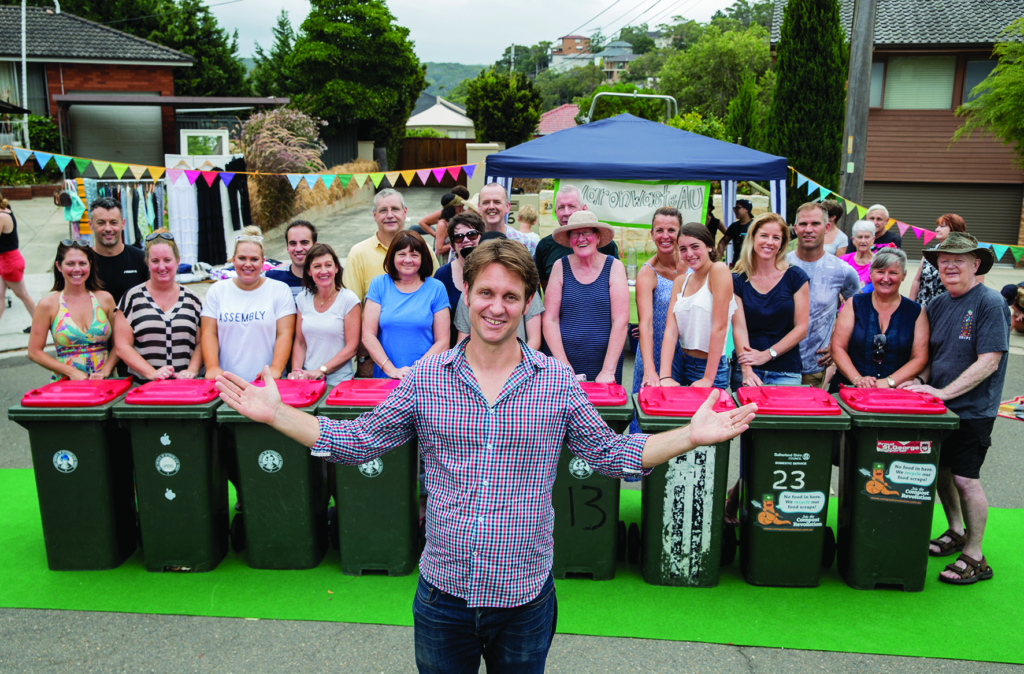
The #BYOCoffeeCup movement has made a meaningful impact as well. 7-Eleven is piloting a recycling program for single-use cups in 200 of its stores,[6]See ‘#CupRescue’, 7-Eleven website, <https://www.7eleven.com.au/cuprescue>, accessed 8 May 2018. and the KeepCup brand of reusable coffee cups saw a whopping 400 per cent increase in sales after War on Waste’s release.[7]Dominic Powell, ‘KeepCup’s Co-founder on the “Crazy” 400% Increase in Sales Fuelled by ABC’s War on Waste Program’, SmartCompany, 8 June 2017, <https://www.smartcompany.com.au/startupsmart/advice/startupsmart-growth/keepcups-founder-crazy-400-increase-sales-fuelled-abcs-war-waste-program/>, accessed 8 May 2018. These products and services are obviously newfound for big business, and, with new solutions entering the market all the time, we aren’t seeing any signs of slowing down.
In August 2017, Four Corners aired a special on the recycling crisis in Australia. The program uncovered a ‘weak system’ in our country, from materials that people believe to be recyclable ending up in landfill to the stockpiling of materials that should be processed through recycling plants. The episode was timely, in light of the issues brought to national attention by War on Waste, but the Four Corners exposé approach contrasted heavily with the ABC series’ values of transparency and agency. Throughout War on Waste, viewers are given suggestions as to direct action that can be taken (such as refusing plastic bags when shopping, and bringing a reusable cup when getting takeaway coffee).
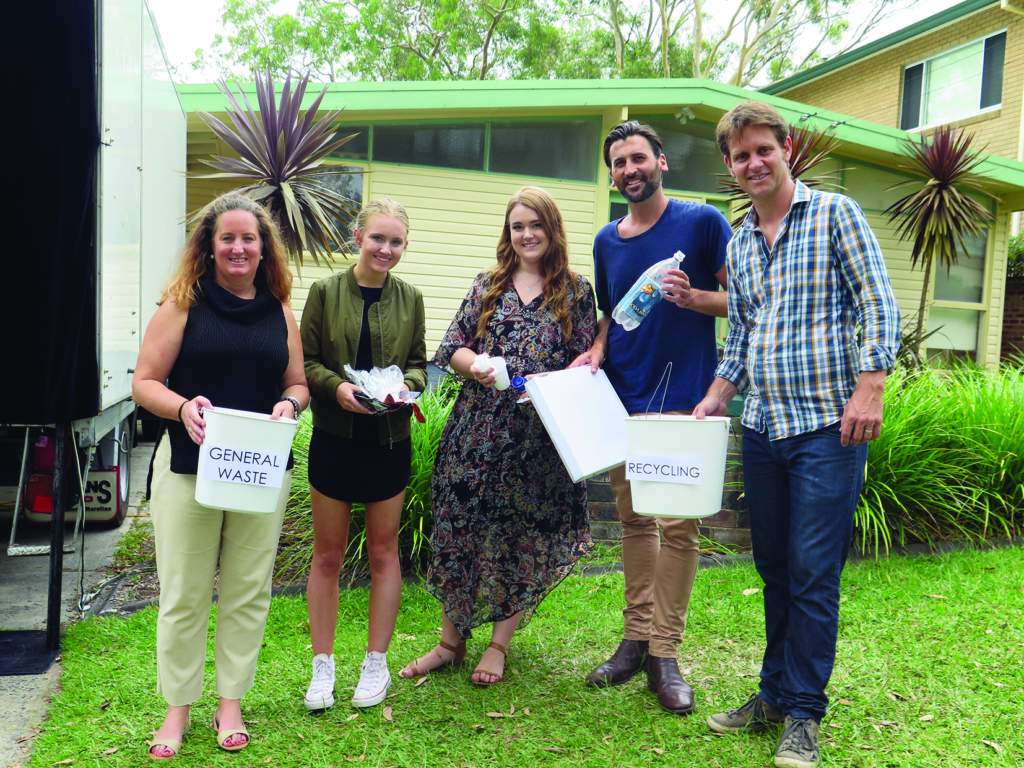
Conclusion
In an age in which we’re fatigued by the many causes in the world, it’s easy to feel overwhelmed and helpless. But War on Waste’s transparent, visible campaigning bucks against that experience, empowering viewers through real advice and tools for realising change effectively. The series’ success is clear from its audience numbers: the first three episodes averaged 1.3 million viewers.[8]Meade, op. cit.
A second season is expected to come out later in 2018, focusing on other common waste culprits such as plastic water bottles and e-waste.[9]Knox, op. cit. With War on Waste’s first season prompting meaningful engagement and real action, Season 2 promises to continue shining a light on the enormous level of waste we rarely think about and what can be done about it.
https://clickv.ie/w/metro/war-on-waste
Endnotes
| 1 | Stephen Oliver, quoted in David Knox, ‘AIDC 2018: “War on Waste Turbo-charged the Issue’, TV Tonight, 7 March 2018, <https://tvtonight.com.au/2018/03/aidc-2018-war-on-waste-turbo-charged-the-issue.html>, accessed 8 May 2018. |
|---|---|
| 2 | Craig Reucassel, quoted in Amanda Meade, ‘War on Waste: New Episode Peels Away at Food Extravagance’, The Guardian, 3 December 2017, <https://www.theguardian.com/tv-and-radio/2017/dec/03/war-on-waste-new-episode-peels-away-at-food-extravagance>, accessed 8 May 2018. |
| 3 | See Ryan Collins, ‘The Positive Results of the War on Waste’, Planet Ark’s Recycling Near You, 26 June 2017, <http://recyclingnearyou.com.au/news/display/1290>, accessed 8 May 2018. |
| 4 | Benedict Brook, ‘Woolworths and Coles to Withdraw Plastic Bags in Some Stores Three Months Before Bans Come into Effect’, News.com.au, 3 April 2018, <http://www.news.com.au/finance/business/retail/woolworths-to-withdraw-plastic-bags-in-some-stores-two-months-before-bans-come-into-affect/news-story/2db4fef2452a733786ad2055d2a140c6>, accessed 8 May 2018. |
| 5 | Nick Kilvert, ‘Plastic Bag Bans Are Coming. Here’s What You Need to Know’, ABC News, 18 April 2018, <http://www.abc.net.au/news/science/2018-04-18/plastic-bans-what-you-need-to-know/9653504>, accessed 8 May 2018. |
| 6 | See ‘#CupRescue’, 7-Eleven website, <https://www.7eleven.com.au/cuprescue>, accessed 8 May 2018. |
| 7 | Dominic Powell, ‘KeepCup’s Co-founder on the “Crazy” 400% Increase in Sales Fuelled by ABC’s War on Waste Program’, SmartCompany, 8 June 2017, <https://www.smartcompany.com.au/startupsmart/advice/startupsmart-growth/keepcups-founder-crazy-400-increase-sales-fuelled-abcs-war-waste-program/>, accessed 8 May 2018. |
| 8 | Meade, op. cit. |
| 9 | Knox, op. cit. |
